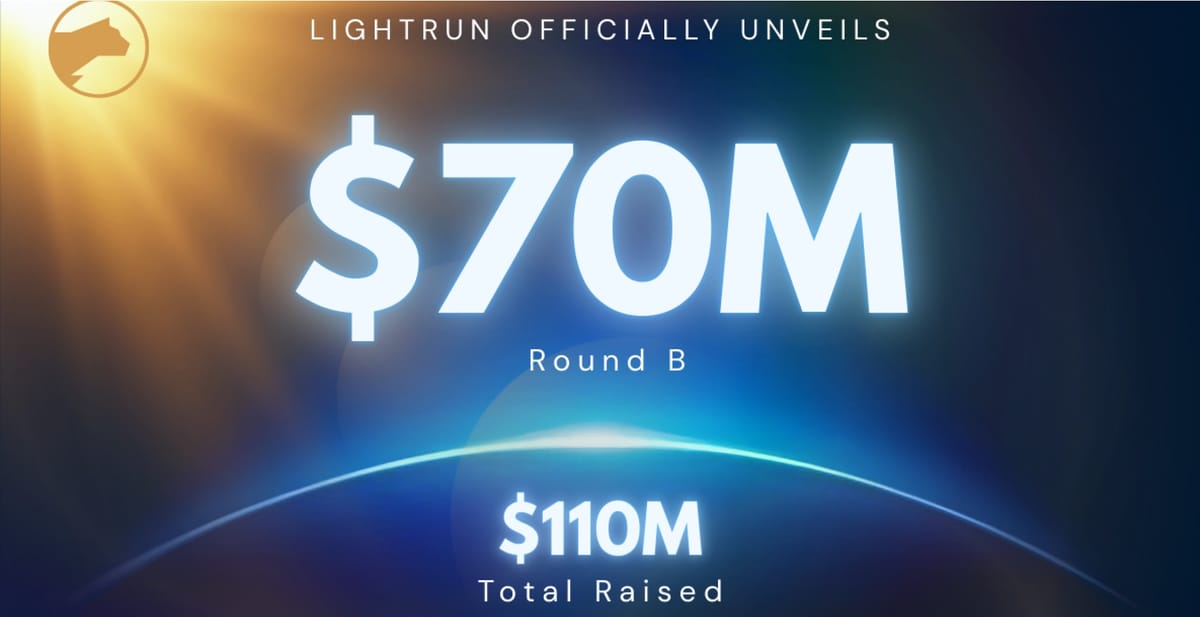As the speed and volume of software development skyrocket in the modern AI era, the cost of failure in production environments has never been higher. Lightrun, an Israeli startup specializing in developer observability, has just secured $70 million in Series B funding to address this growing challenge. The round was co-led by Accel and Insight Partners, with participation from Citi, Glilot Capital, GTM Capital, and Sorenson Capital, bringing Lightrun’s total funding to $110 million.
Key Points
- Lightrun raised $70M Series B led by Accel and Insight Partners, with participation from Citi and other investors, bringing total funding to $110M.
- The company's observability platform can detect and fix code issues in production environments without interruption, particularly valuable as AI tools accelerate code generation and increase bug frequency.
- Lightrun serves major enterprise clients including Citi, Microsoft, and Salesforce, with revenue growing 4.5x year-over-year.
Founded by CEO Ilan Peleg and CTO Leonid Blouvshtein, Lightrun tackles a mounting industry paradox: while AI accelerates code generation, it also exacerbates the risk of bugs, crashes, and costly production outages. Traditional observability tools focus on alerting teams after issues arise. Lightrun flips the paradigm by embedding real-time debugging directly into developers’ IDEs, allowing organizations to detect, diagnose, and autonomously fix issues before they impact users or business operations.
Its breakthrough product, the Runtime Autonomous AI Debugger, simulates how code will behave alongside live production environments, offering live patching capabilities without the need for redeployments. This approach has resonated strongly in industries where operational resilience is paramount. Lightrun now counts Citi, Salesforce, Microsoft, ADP, AT&T, SAP, and Priceline among its enterprise customers. Notably, Citi is not just a customer but a strategic investor, underscoring the platform’s relevance for highly regulated, high-stakes industries.
Revenue at Lightrun has grown by 4.5× year-over-year, and its team has doubled in size, milestones that helped seal investor enthusiasm. According to Accel’s Andrei Brasoveanu, real-time remediation is no longer a luxury but an imperative in an AI-native software landscape where uptime, compliance, and competitive advantage are tightly intertwined.
Peleg believes Lightrun is nearing what he calls the “holy grail” of software observability: not just monitoring systems, but predictively identifying and autonomously fixing issues at the code level — at scale, and in real-time. As automation continues to redefine the software development lifecycle, Peleg sees Lightrun as critical infrastructure: a platform ensuring that even as developers ship code faster, the resulting systems remain robust, resilient, and self-healing.
Strategically, Lightrun has room to expand its technology stack deeper into areas like cybersecurity and AI-assisted code creation. But for now, the focus remains squarely on owning the runtime remediation space — where the stakes are highest and the pain points clearest.
“Code is becoming cheap, but bugs are expensive,” Peleg notes. In a world rushing toward autonomous software development, Lightrun’s mission is clear: make production resilience autonomous too.

